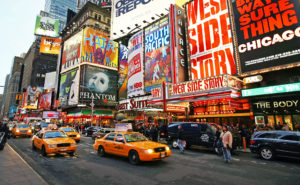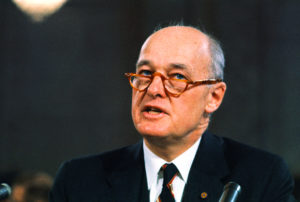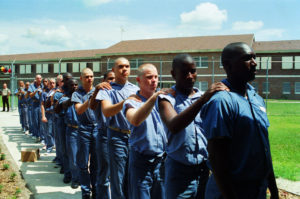How flattering to be asked to recommend an overlooked book. I have the habit of sending beloved books on to friends. This is, I know, the delusion of an amity which nowhere extends to suggestions of literature. I know that my friends never read the books I suggest, as I never read the books they send.
Indeed, their suggestions fairly regularly force me to re-evaluate, if not their intelligence, at least their taste. “Love me, love my dog” is the law of life; and how sad it is to ask how one enjoyed my gift, and to perceive not only their lying endorsement, but the, perhaps preferable, fib that they had read it. I enjoy throwing books in the trash, as I enjoy mixing the various articles the environmentally conscious suggest should be separated for more easy recycling. In 1914, Carl Sandburg saw “the painted women under the gas lamps luring the farm boys”, and lately I have seen the various separated recyclables re-mixed in the dumptruck.
But we both survived the trauma. Sandburg until 1967, and myself, to this very morning of writing.
My native Chicago built some rather tacky Urban Renewal Housing on the North Side in 1960. The construction was cheap, and the style Talentless Architect, Friday Afternoon; but it was to be dedicated to Affordable Housing for — supposedly — The Worthy. Their identity would be determined, then as now, by the whim of the bureaucrats. The worthy here turned out, predictably, to be the well-to-do who knew someone at City Hall. Where do we not find human perfidy? It certainly is found in the book which is my subject.
It is Kingsblood Royal, written by Sinclair Lewis in 1947. He, like most Western literature, is forgotten today, and it’s a shame, as he wrote some very good and very important books. They, at least, were important to me, as they hipped me to literature.
I used to cut school in the Fifties to go read. I would spend two or three hours in the Public Library Reading Room browsing the open stacks. What a delight; there, as with the old, independent bookstores, one could follow one’s nose without the guidance of a machine electronic or political. In any case, I, 13-years-old, came across a book called Main Street (1920) by Sinclair Lewis and read until I laid it down. It was his breakthrough novel about the dreary life of a Minnesota Town, and it sounded just like my youth in and outside Chicago.
His Babbitt (1922) is the story of a real estate Booster — the progenitor both of Death of a Salesman and Glengarry Glen Ross. The books are masterpieces. I will not suggest you read them, in the hope that you may. And he, a most prolific gent, wrote a bit of trash, some okay fiction, and a few outliers. Outliers include It Can’t Happen Here (1935), the story of Fascism’s arrival in America, and Kingsblood Royal (1947).
This is a race story. It is not the race porn of today’s literature-adjacent plaints of mistreatment or avowals of white guilt. No. It is the story of a returning white WWII Vet, a rising cashier at a bank, who lives in the country-club set. The set takes up a lot of the members’ time drinking and dissing the servants. Their servants are all black, and their dish is about how lazy, offensive, sub-human and so on black people are, and how they are getting too big for their britches. Neil Kingsblood, our hero, agrees, and joins in the jollity.
But Neil, lamed in the War, can no longer engage in his beloved tennis; and, looking for a hobby, he takes up genealogy. What does he find? He finds that his great-great-grandfather was black.
What to do?
Note, this is 1947, where a mixed-race couple, walking down a street in the South or the North did so at the risk of their lives; where the entire country was Jim Crow, and blacks, who’d been hired in the war effort were fired at the war’s conclusion. And so on. Not that long ago.
Should he “confess his taint”, he and his entire family will be ruined. He now wonders if the white community in which he lives can discern his black blood; as, indeed, they claim: “I was raised in the South and I can spot a dinge with only one drop of Negro Blood.”
He meets a returning black aviator, a combat pilot and Captain, who is now working in a barbershop. They begin chatting, one vet to another, and Neil, little by little, gets drawn into the black community. He is invited to the aviator’s home, where he is treated with chill reserve. But when he blurts out that he is himself “a Negro” he is enfolded in compassion and love. He comes to realise that blacks are not arrogant or standoffish, but necessarily self-protective among whites, as he is among blacks. But as a black among blacks he finds community.
He falls in love with a black girl, who congratulates him upon being black. He makes the truest friends he’s known since the camaraderie of the war. The book becomes that love story of every new convert. In his decision, his new friends commiserate and advise him to continue to pass, as what good would it do to come out? (The phrase Lewis uses.)
But he hears his new friends, and blacks in general, abused and dehumanised at a stag party, and speaks up for them. His country club cronies start to look sideways at him, and one uses that phrase, well-known to my youth: “what are you, a n—r lover?” He blurts out that he is a “negro”.
Well, his family turns on him, he loses his job, he is bullied and arrested, his home is taken from him, under a “restrictive covenant” he signed, affirming that he was Caucasian.
Is this polemical, forgotten book important? It is important to me. Here’s why: It is a book about delusion.
Anthony Trollope, a humane and compassionate author, wrote of one of his characters: “When one knew he was a Jew one saw he was a Jew.” This is the wise writer unconsciously revealing delusion. It made sense to mid-Victorian readers who, like Trollope, were unaware their consciousness had been warped into absurdity by prejudice. For the phrase cannot actually mean anything other than: “Jews do not look or act differently from Christians; but I am led to believe so, by their label.”
Neil Kingsblood, an accepted, respected, accomplished, white member of his white community, when revealed he had “one drop of Negro blood”, was found to possess all the unfortunate (and imaginary) aspects of blackness. The accidental revelation of his ancestry led him to the discovery of a community madness, of which he was, previously, unaware, and in which he happily participated.
Will some people today find the book objectionable? Yes. That they will is evidence of another community sickness, that of our own advanced time: that sensitive matters can only be treated by those claiming to be victims, and then only by their indictment of their supposed oppressors. (I will name whites, straights, conservatives, Christians — ingathered into that accommodating portmanteau: “Haters.”)
Books about black-white relations (as opposed to books about, for example, being black: Native Son, Invisible Man, Passing) can only be written by an author belonging to one of the two groups. The group to which he does not belong will assuredly find humour and likely insult in this author’s ignorance. But what is one to do?
The only book featuring Jews and written by a Christian which I, a Jew, did not find ludicrous or enraging, was Ivanhoe. Everyone else gets it wrong, including George Eliot and her Daniel Deronda.
The Christian authors portraying Jews are like the Hollywood moguls who (with the exception of their casting of Paul Newman, a Jew, in Exodus) always cast a Christian as the Jew because, supposedly, to cast an “actual” Jew would outrage Christian sensibilities.
Returning to American Literature, here are two condign books. The first is Gentleman’s Agreement (Laura Z. Hobson, 1947). Here, a Christian journalist becomes aware of anti-Semitism, and sets out to investigate.
He goes to this and that hotel and restaurant, and tries to receive service as Mr Goldberg and is told to buzz off. His family and his community turn against him, and so on, the mixture as in Kingsblood Royal. In a bellylaff scene, he upbraids his Jewish Secretary, for being insufficiently Jewish, in using an anti-Semitic phrase. It was made as a film with Gregory Peck and won all kinds of awards for the Humanity of His Performance. Joe Mankiewicz said that its moral is you should always be kind to a Jew, as he might turn out to be a Christian.
Our lives, yours and mine, are full of sanctimony; in fact, a grand tool of self-diagnosis is recognition of the warm joy we take in sententiousness, and its big brother, righteousness. It is a lead-pipe cinch that these sugar-coat complicity.
A second book: In 1961, John Howard Griffin, a white man, took chemicals to darken his skin and travelled two months in the Jim Crow South, writing articles for Sepia about the plight of Southern blacks. These, published in book form as Black Like Me, record his actual experience of the fictive journey of Neil Kingsblood.
Sinclair Lewis’s story might have ended with Kingsblood’s discovery that he had been given the wrong genealogical chart, and that, after all, he did not have that drop of tainted “Negro Blood”. The end, therefore, which perhaps did not need further clarification, would have been that race is a delusion. As indeed it is. Its contemporary pre-eminence to the exclusion of all other human characteristics is our current-day sanctimony, as false and wicked as bussing, segregation, and Jim Crow; and, like them, a mantra in repetition of which one can seek escape from rational thought.
Reading seems to be my hobby; and, as a hobbyist, I am delighted by discovery of the obscure. The majority of the books beloved by their time are trash. Some are rediscovered and embraced, most are, blessedly forgotten. Some few have entertainment or educational value for those with a scholarly bent. Kingsblood Royal is a smorgasbord of the above.
Disclaimer
Some of the posts we share are controversial and we do not necessarily agree with them in the whole extend. Sometimes we agree with the content or part of it but we do not agree with the narration or language. Nevertheless we find them somehow interesting, valuable and/or informative or we share them, because we strongly believe in freedom of speech, free press and journalism. We strongly encourage you to have a critical approach to all the content, do your own research and analysis to build your own opinion.
We would be glad to have your feedback.
Source: UnHerd Read the original article here: https://unherd.com/





